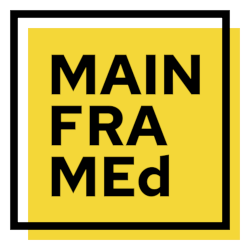Advanced z/OS Job Control Language (JCL)
Code: JCLABeen everywhere and found nothing…
Do you need a Custom Course or Solution?
Description
This course provides an in-depth look at z/OS JCL. It explores Generation Data Groups, Conditional JCL, Procedures and the use of UNIX files before rounding off with an introduction to various utility programs.
Audience
This course will interest programmers, computer operators, system analysts, system programmers, and all others involved in improving coding techniques and exploring JCL's features.
Prerequisites
Delegates should have a basic understanding of the operating environment and operating system functions, especially JCL. This can be gained by attending our z/OS Job Control Language course.
Knowledge of TSO/ISPF is required for this course. This can be gained by attending our z/OS TSO/ISPF Workshop.
Objectives
On completion of this course, delegates will be able to:
- Create and maintain a GDG.
- Exploit the use of Conditional JCL.
- Create in-stream procedures.
- Create catalogue procedures.
- Use symbolic parameters.
- Use procedure overrides.
- Access UNIX files via JCL.
- Choose an appropriate utility for a task.
Topics
JCL Revision
Evolution of JCL.
JCL syntax.
Statement types.
Operand types.
JCL Error points.
Comprehension quiz.
Generation Data Groups
GDG Terminology:
• Absolute generations.
• Relative generations.
Creating generations.
Retrieving generations.
Building a base entry.
Creating a GDS:
• Using a Model DSCB method.
• Using the DATACLAS method.
Listing GDG information.
Altering the base entry.
Re-run using Version Numbers.
Deleting entries:
• IEFBR14 method.
• IDCAMS method.
Delete base and its associations.
Comprehension questionnaire.
5 practical exercises.
Conditional JCL
Information available at step end.
IF / THEN / ELSE construct.
Relational expressions.
The NOT operator.
Order of precedence.
Eligible statements within Conditional JCL.
Ineligible statements within Conditional JCL.
What is executed unconditionally?
Example without an ELSE.
Example with an ELSE.
Nested IF statements.
Comprehension questionnaire.
3 practical exercises.
JCL Procedures
Procedure definition:
• Locating a procedure.
• Default libraries (JES2 and JES3).
• User libraries (JES2 and JES3).
• JCLLIB.
• In-stream.
• Search order.
Procedure construction:
• Naming.
• Exclusions.
• Invocation.
Procedure statement overrides and additions:
• EXEC statements.
• DD statements.
• OUTPUT statements.
Symbolic parameters:
• Identification.
• Assigning default values.
• Overriding default values.
• The SET statement.
INCLUDE statement.
Nested procedures.
Comprehension questionnaire.
8 practical exercises.
Accessing UNIX files
File systems HFS vs. ZFS.
Security.
PATH=.
PATHDISP=.
PATHMODE=.
PATHOPTS=.
Creating a new file.
Overwriting an existing file.
BPXBATCH Utility.
Deleting a UNIX file.
Re-run-able jobs.
Reading an existing file.
Obtaining a list of files.
6 practical exercises.
Using Utilities
Review of why a utility might be used, discussions on:
• Allocating data space.
• Backing up a data set.
• Changing a data set's LRECL.
• Compressing a PDS.
• Copying a data set.
• Deleting a data set.
• Listing the catalogue.
• Listing a PDS directory.
• Printing a data set.
• Renaming a data set.
• Restoring a data set.
• Segmenting a data set.
ADRDSSU.
IDCAMS.
IEBCOPY.
IEBDG.
IEBEDIT.
IEBGENER.
IEBPTPCH.
IEBUPDTE.
IEFBR14.
IKJEFT01 – (Batch TSO).
Comprehension quiz.
4 practical exercises.
Price (ex. VAT)
Duration
Delivery methods
- Classroom
- On-site (at your location)
- Virtual (instructor online)
